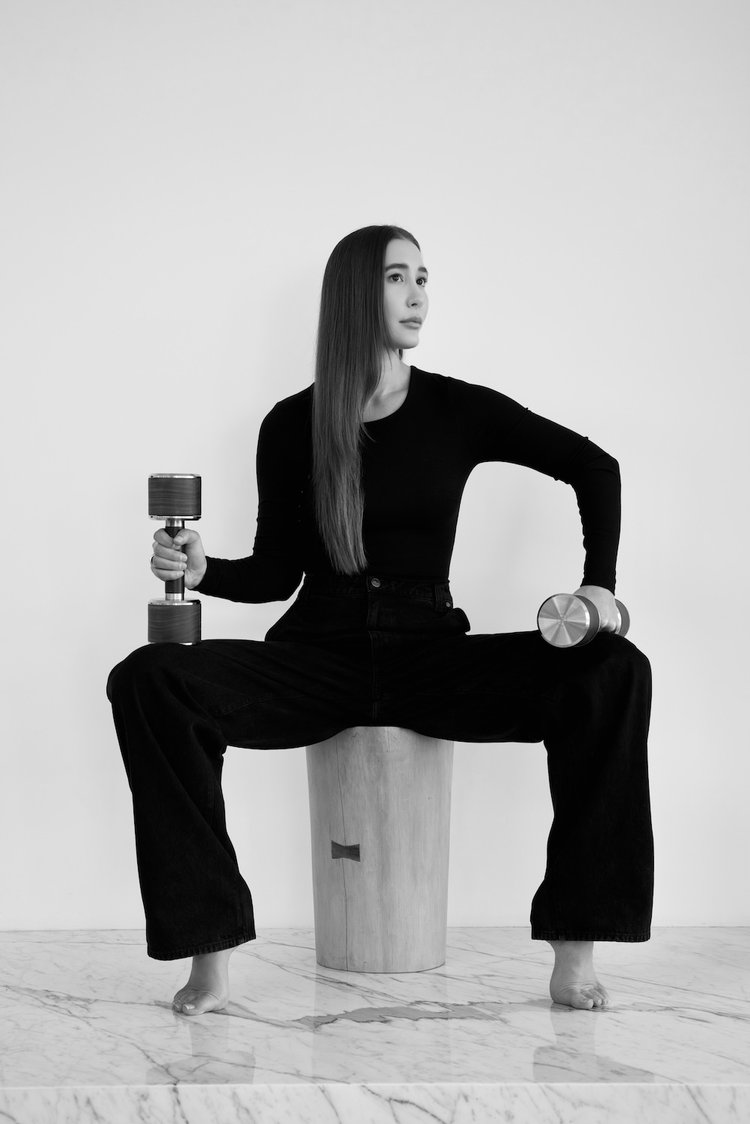We need sleep. We need quality sleep, and we’re not getting enough of it- myself included. Now, while you may be proud about needing less than 6 hours of sleep a night to function, this act is more harmful than anything else. With poor sleep comes an increased risk for chronic conditions like diabetes, heart disease, dementia, and anything else that can harm your longevity. So, once again – you need sleep.
Kayla Barnes-Lentz, a certified brain health coach and biohacker with a passion for longevity, definitely understands the importance of a good night’s rest. So much so that she took to Instagram to share her top hacks for a better night’s sleep.
Kayla Barnes-Lentz Easy Sleep Hacks
1. Cool Room (63-65F)
I can’t sleep unless I feel snug and warm in my bed, regardless of the weather, and it seems that Barnes-Lentz is on the same page. The biohacker revealed that she opts to sleep in a cool room with a temperature of 63-65F, which aligns with previously published research.
According to a 2023 study, optimal sleep quality was observed in bedrooms with temperatures between 20 and 25 °C (68-77F), and it later dropped at higher and lower levels.
So, how do cooler temperatures improve your sleep quality? It appears that as your body cools, the more melatonin it releases, which preps you for a better night’s rest.
If you’re hoping to cool down your room, you could invest in cooling bedding, sleeping naked or in cool pajamas, keeping the windows open, or using a fan.
2. No Alcohol
Alcohol can seriously affect how well you sleep, which is exactly why Barnes-Lentz stays clear of it.
According to the Sleep Foundation, the amount of alcohol you consume can directly reduce sleep quality, with low alcohol consumption (less than 2 drinks for men and less than 1 for women) reducing sleep quality by 9.3%.
Moderate alcohol consumption (2 drinks for men and 1 for women) reduced sleep quality by 24% and excessive alcohol consumption (more than 2 drinks for men and 1 for women) decreased sleep quality by 39.2%.
As for exactly how alcohol impacts sleep quality, a 2021 review concluded that alcohol can disrupt circadian rhythms and cause shorter sleep times, oversleeping, snoring, disrupted REM sleep, daytime sleepiness and vivid dreams.
3. Lavender Essential Oil
Essential oils are natural oils derived from nature through distillation or cold pressing. Essential oils can help address various health concerns. Lavender essential oil is one of the more popular essential oils, and for good reason.
Thanks to its ability to relax the nervous system, as well as reduce agitation and restlessness, lavender essential oil can make it much easier to fall asleep – especially after a stressful day.
With that said, here are some other essential oils you can use for better sleep.
4. Magnesium Daily
Magnesium is one of the most important minerals in the body, so a deficiency may affect sleep quality. Past research has indicated that a low magnesium status may cause sleep dysfunction, so the inverse could also be true.
Barnes-Lentz shared that she takes the BIOptimizers Magnesium supplements daily, particularly because it has 7 forms of magnesium.
Similar to lavender essential oil, magnesium has a calming effect on the body, reducing cortisol levels and calming the nervous system.
5. Meditation Before Bed
If you’re hoping to create a quality bedtime schedule, it’d be advisable to include meditation in your routine.
Meditating before bed won’t only promote relaxation and reduce stress, but it can also calm any restless thoughts that you may have before bed.
6. Re-timer Glasses
Re-timer glasses, available here, use blue-green light therapy for 30–45 minutes during the day in an effort to restart and regulate our circadian rhythm.
The science behind the glasses is that exposure to light at different times can affect body clocks. So, exposing yourself to bright light in the morning can reset your body clock and increase the chances of you sleeping better at night.
Want to know more?
There are a few things that can disrupt sleep, including sharing a bed. In fact, opting for a sleep divorce may be exactly what couples need to improve their sleep quality and their relationships.
References
@kaylabarnes (2024). Instagram. Available at: https://www.instagram.com/kaylabarnes (Accessed: 03 September 2024).



![women [longevity live]](https://longevitylive.com/wp-content/uploads/2020/01/photo-of-women-walking-down-the-street-1116984-100x100.jpg)










